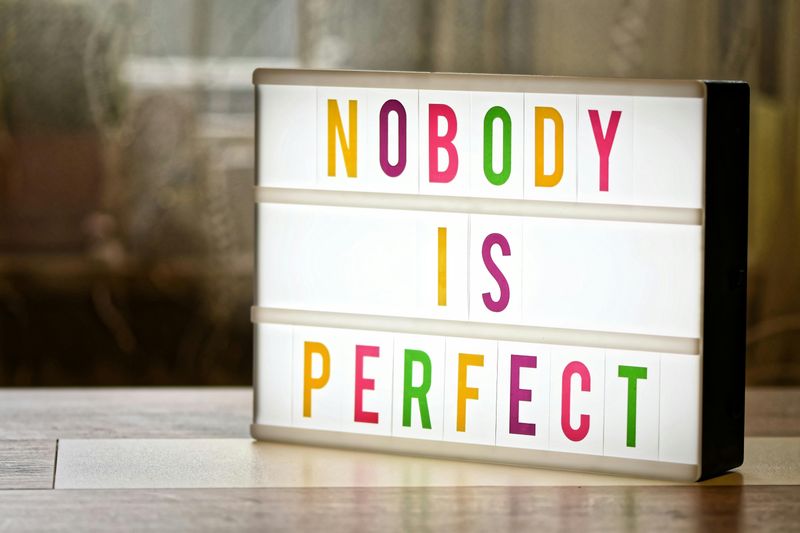Navigating relationships can be tricky, especially when certain personality traits create obstacles along the way. While everyone has quirks and characteristics that make them unique, some traits might unintentionally cause friction between partners. Understanding these potential relationship roadblocks doesn’t mean labeling anyone as ‘bad’ – rather, it’s about recognizing patterns that might need attention to build healthier connections.
1. The Silent Treatment Specialist

Nothing freezes a relationship faster than the cold shoulder. When upset, this gal retreats into her shell, refusing to communicate until her partner decodes what went wrong. I’ve witnessed friends transform into emotional icebergs during conflicts.
The problem? Mind-reading isn’t actually a skill most humans possess! This communication shutdown prevents problems from being addressed properly and leaves partners walking on eggshells.
Without open dialogue, resentment builds on both sides, creating a vicious cycle that’s harder to break with each silent episode.
2. Jealousy Junkie

Green isn’t just the colour of money; it’s the shade of suspicion that can poison perfectly good relationships. A jealous partner scrutinizes every text message, questions innocent friendships, and turns casual conversations into interrogations.
I once dated someone who demanded to know why I’d liked a colleague’s holiday photo on social media! This constant suspicion stems from insecurity but manifests as control.
The exhausting cycle of proving loyalty eventually drains both people, leaving little energy for actual connection and joy in the relationship.
3. The Perpetual Victim

Life’s unfair sometimes, but the perpetual victim believes the universe has a personal vendetta against her specifically. Every mishap becomes evidence of cosmic conspiracy rather than random chance or natural consequences.
The drama might seem entertaining at first (who doesn’t love a good story?), but partners eventually tire of constantly playing emotional rescue squad. My cousin’s ex turned even burnt toast into proof that the world was against her!
This outlook prevents personal growth and problem-solving, as everything becomes someone else’s fault, including relationship issues that need mutual addressing.
4. Conflict-Avoiding Chameleon

She’s lovely, agreeable, and absolutely terrified of rocking the boat. The conflict avoider says ‘yes’ when she means ‘no’ and swallows her opinions to keep peace. I’ve watched my best mate morph into whoever her boyfriend wanted for five painful years.
While harmony feels nice temporarily, authentic connections require occasional disagreement. Without expressing true feelings, resentment festers beneath her pleasant facade, eventually erupting in unexpected ways.
Partners often feel they’re dating a ghost; someone physically present but emotionally elusive, making genuine intimacy nearly impossible to achieve.
5. Perfectionism Princess

Perfectionists don’t just have high standards; they have impossible ones. Nothing’s ever quite right: the dinner, the holiday plans, the way he folded the laundry. My sister-in-law once reorganized an entire bookshelf her husband had just arranged because the spines weren’t perfectly aligned!
This constant critique creates an atmosphere where partners feel they can never measure up. The perfectionist herself suffers too, trapped in anxiety about controlling everything.
The relationship becomes a never-ending improvement project rather than a safe haven, with spontaneity and joy sacrificed at the altar of flawlessness.
6. Emotional Rollercoaster Rider

Monday she’s ecstatic, Tuesday she’s devastated, Wednesday she’s furious; all before breakfast! The emotional rollercoaster rider experiences feelings at maximum volume with minimal provocation. I once watched my flatmate cycle through three emotional breakdowns over a minor work email.
Partners of these emotional thrill-seekers often feel like unpaid therapists, constantly managing crises that seem disproportionate to actual events. The unpredictability creates a walking-on-eggshells atmosphere.
Even positive emotions become exhausting when they’re constantly at fever pitch, leaving little emotional energy for genuine connection during calmer moments.
7. Scorekeeper Supreme

Remember that time three years ago when he forgot to buy milk? The relationship scorekeeper certainly does! She maintains a mental ledger of every transgression, favour, and sacrifice, ready to present this accounting during arguments.
I once dated someone who reminded me I’d been 15 minutes late to dinner eight months earlier when I mentioned feeling rushed. This tit-for-tat approach transforms relationships into competitions rather than partnerships.
Genuine forgiveness becomes impossible when past mistakes are constantly recycled, preventing the relationship from moving forward and healing from normal human errors.
8. Chronic Comparison Maker

“My friend’s boyfriend surprised her with concert tickets” or “My sister’s husband never leaves dirty dishes in the sink.” The comparison maker measures her relationship against carefully curated snapshots of others, creating impossible standards.
Social media has supercharged this trait; I’ve watched friends scroll through Instagram, sighing at romantic gestures they believe they’re missing. These external benchmarks ignore the unique strengths of her own relationship.
Partners feel they’re competing with an imaginary perfect boyfriend who doesn’t actually exist, creating pressure that damages the genuine connection they could be building.
9. Independence Extremist

Fierce independence can be brilliant; until it becomes a relationship barrier. The independence extremist prides herself on needing absolutely nobody, viewing vulnerability as weakness and emotional reliance as failure.
My colleague maintains such rigid boundaries that her boyfriend of three years still needs to schedule dates a week in advance! While autonomy is healthy, relationships require interdependence and occasional leaning on each other.
Partners often feel unnecessary or unwanted when every offer of help is rejected, creating emotional distance that prevents true intimacy from developing naturally.
10. Passive-Aggressive Pro

“Whatever you want” (but actually not that). “I’m fine” (while slamming cupboard doors). The passive-aggressive communicator expresses negative feelings through subtle jabs rather than honest conversation.
My aunt is the queen of backhanded compliments: “That outfit is so brave!” The problem? This indirect hostility creates a confusing environment where partners can’t address issues they can’t clearly identify.
The relationship becomes an exhausting game of emotional detective work, with both people frustrated by problems that remain perpetually unresolved beneath a veneer of supposed agreement.